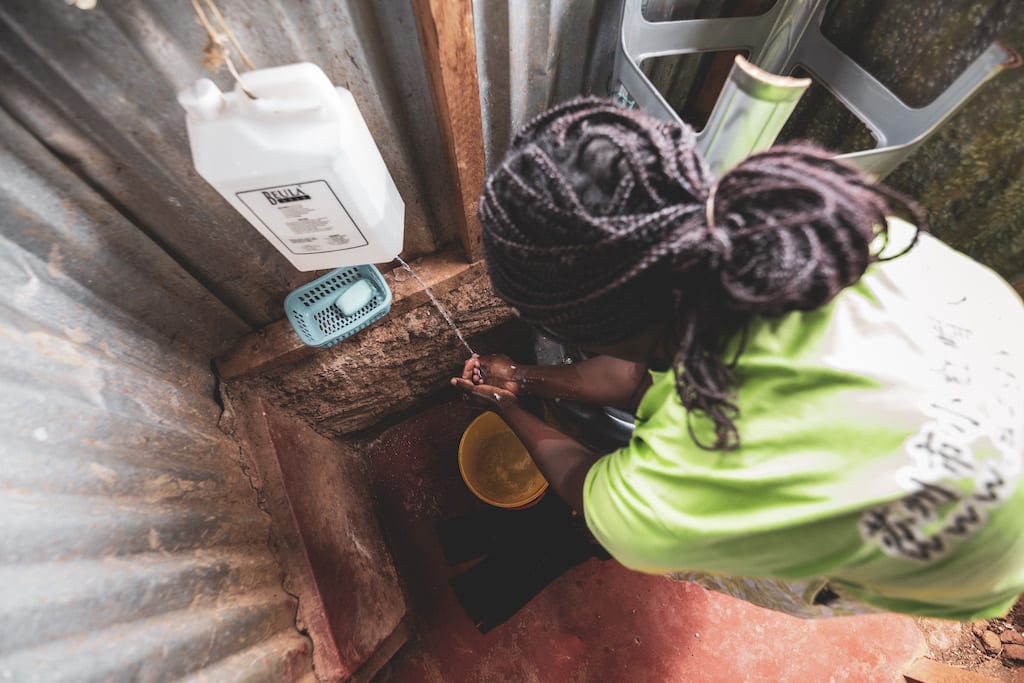The world is coming together to stop the spread of COVID-19. We know that people living in poverty are some of the most vulnerable in times of crisis. That’s why our local church partners are stepping up to support the children and families in Compassion’s program during this time.
Even though Compassion centre activities are cancelled and social distancing must be practiced, Compassion staff are finding creative and impactful ways to serve their communities. Here are just a few examples.
More: Read Part One of how Compassion centres are responding to COVID-19.
In Kenya, a Compassion centre has provided families with supplies and instructions to make hand sanitizer.
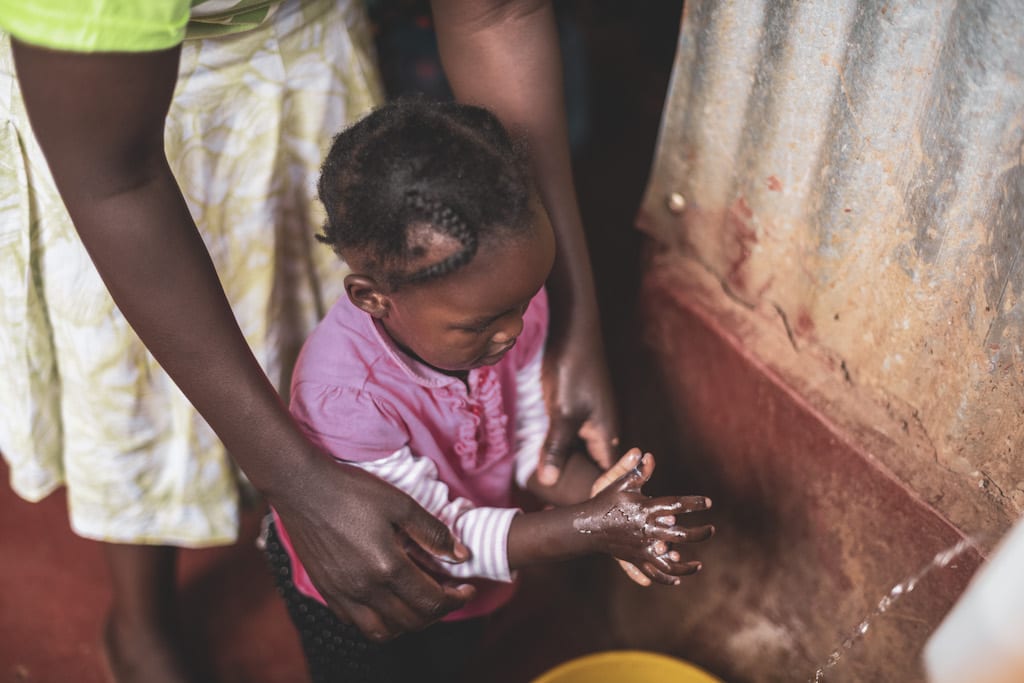
When news about COVID-19 first emerged, nobody in the small slum community of Dagoretti, Kenya thought they would soon be on the defensive. But as we all know, things escalated quickly.
“When the first cases were announced in Kenya, we suspended program and immediately embarked on creating awareness on the virus and providing information on how to minimize the chances of infection,” says Mary, who leads the Survival program at a Compassion centre in Dagoretti.
Access to running water is a major challenge in the slums. In order to combat this, the Compassion centre has been teaching parents how to make an item known as a ‘leaky tin’.
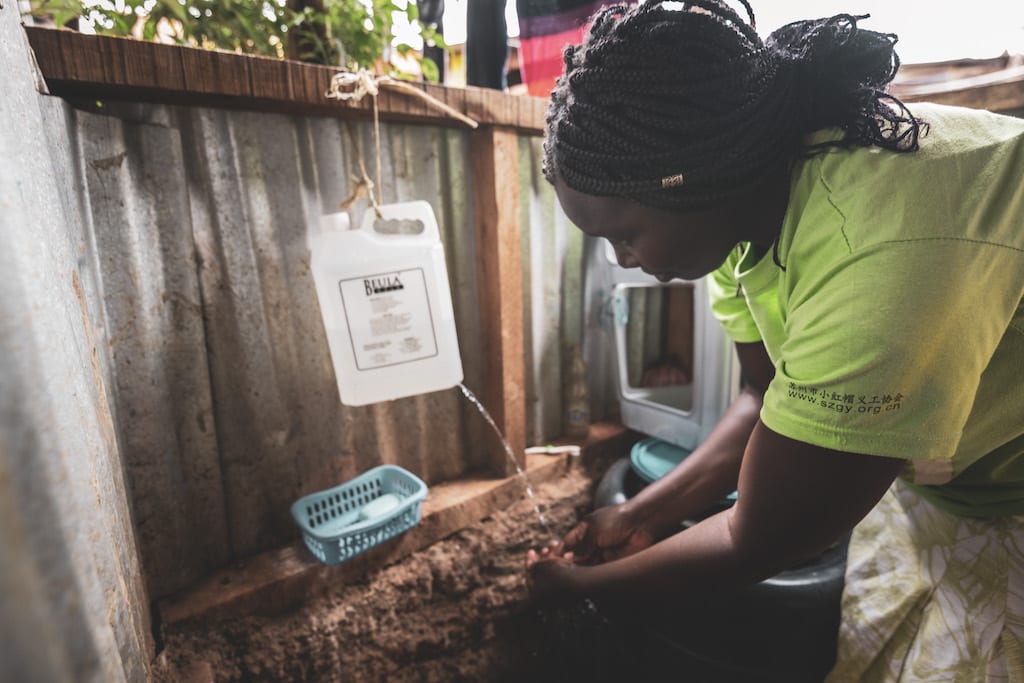
A mother of a Compassion child washes her hands using her homemade ‘leaky tin’.
“It is simple, and anybody can do it,” says Mary. “All you need is a clean used jerry can and a nail to puncture a small hole at the bottom. The nail can also be used as a tap to block the flow of water when it is not in use.”
However, water can be scarce and expensive to buy at times, so the Compassion staff have also taught caregivers how to make homemade hand sanitizer from glycerin and rubbing alcohol. “Because the demand for sanitizers really escalated, we have provided provisions to every [child and their family] and taught them how to make sanitizers so that when water is not available, they can still be safe,” says Mary.
In the Dominican Republic, Compassion’s local church partners have been preparing to respond to this global situation since early March.
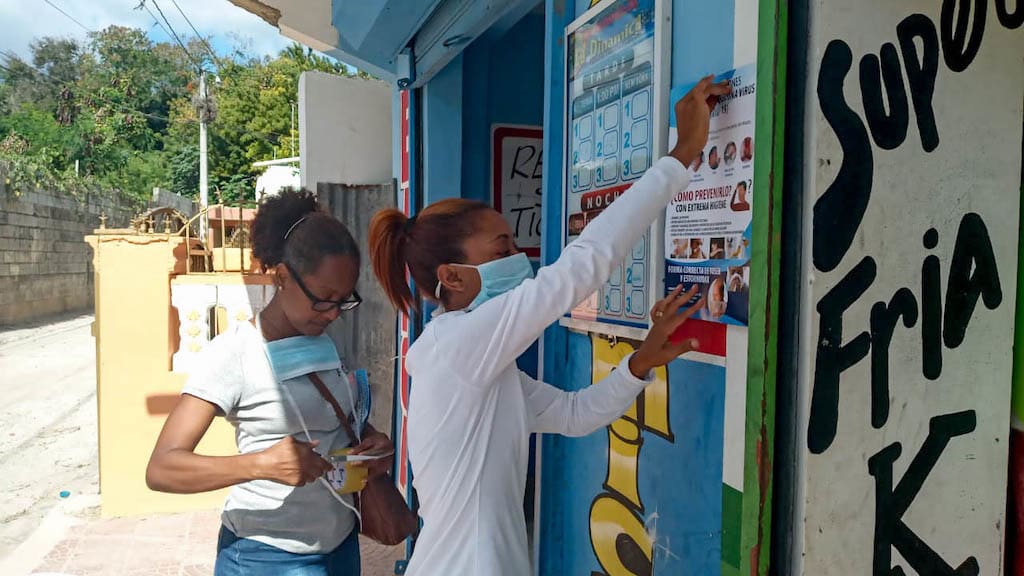
Compassion staff put up posters to raise awareness about preventing the spread of COVID-19.
Since early March, Compassion’s local church partners have been distributing educational pamphlets and posters to educate the community about preventing COVID-19. Some Compassion centres connected with local radio broadcasters so the message could reach a broader audience.
During home visits and at the centre, pastors and staff taught families how to correctly wash their hands and shared other prevention tips. Some centres provided gift cards to parents to buy groceries, while others distributed food parcels to families.
“We are impressed by how our churches have responded to this pandemic. They have given preventative talks to children and caregivers. They have also distributed personal hygiene products, and within their plan, they are supplying food to those families who are most vulnerable,” says Keilin Baez, Health Specialist for Compassion Dominican Republic.
Now that Compassion centres across the country are closed, staff continue to connect digitally with families. They are confident that their early interventions prepared children and families well to manage the pandemic.
In Honduras, Compassion and other NGOs are working closely with the government to get supplies to vulnerable families in the midst of city lockdowns.
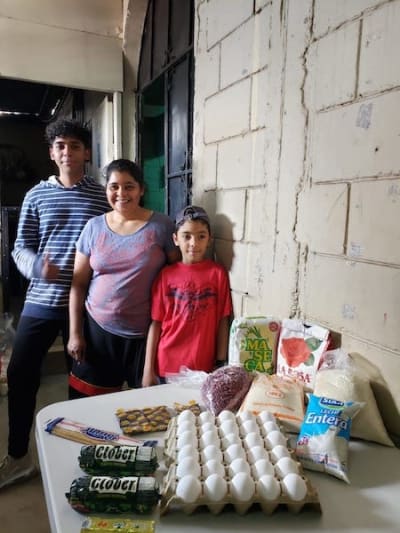
As soon as the lockdowns started, Compassion Honduras’ National Disaster Response Team sprang into action. They executed an emergency plan to urgently purchase, pack and deliver groceries and other essential supplies to families living in poverty.
However, executing such a plan in the midst of a lockdown took careful coordination with local authorities. Thankfully, Honduras’ highest office was supportive of organizations like Compassion.
“The President of Honduras met with some non-governmental organizations, including our national office,” says Compassion Honduras’ National Director, Yolanda Rodas. “He wanted to oversee how the most vulnerable populations are being served during the emergency. We let him know about the role of Compassion nationwide and our response to more than 10,900 children and their families. We managed to get permission for some of our staff to deliver groceries to the children.”
Ensuring to wear masks and gloves, Compassion staff made the much-needed deliveries.
“The grandmother of one of our children broke down in tears when we delivered the groceries,” says Ninfa, the director of a Compassion centre in Honduras. “They had run out of food and had no one to turn to. I was moved to tears as well. If not for Compassion’s rapid response, this child, Ivis, and his grandmother would have been left adrift, like many others in our country.”
Children and staff alike miss gathering for Compassion centre activities. But, they are staying connected through technology, sending text, voice and video messages to each other, sharing Bible verses, worship songs and prayer requests, and reminding each other of the health advice we are all receiving: stay home, wash your hands, wear a face mask and do your part to help stop the spread of the virus.
Photography and field reporting by Isaac Ogila (Kenya), Yrahisa Mateo (Dominican Republic) and Juana Ordonez Martinez (Honduras)

